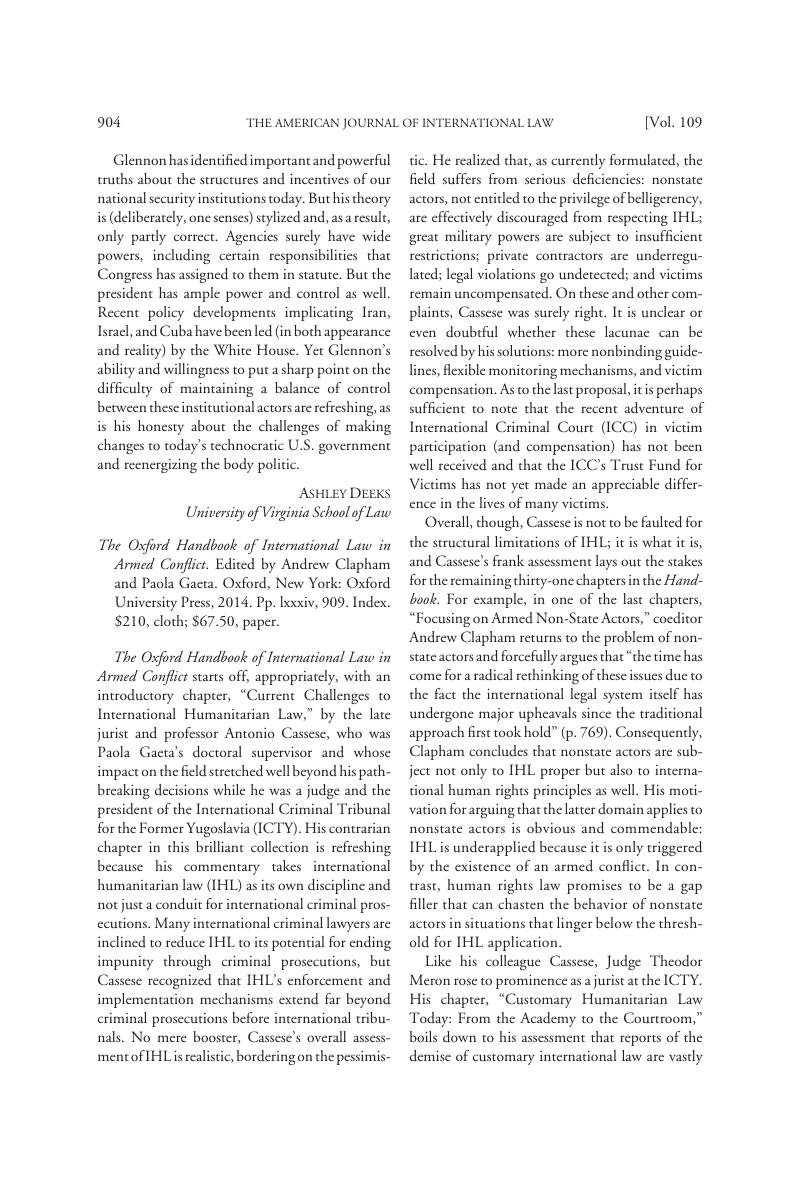No CrossRef data available.
Published online by Cambridge University Press: 20 January 2017

1 Nils Melzer, International Committee of the Red Cross, Interpretive Guidance on the Notion of Direct Participation in Hostilities Under International Humanitarian Law (2009), available at https://www.icrc.org/eng/assets/files/other/icrc-002-0990.pdf.
2 See Parks, W. Hays, Part IX of the ICRC “Direct Participation in Hostilities” Study: No Mandate, No Expertise, and Legally Incorrect, 42 N.Y.U.J. Int’l L. & Pol. 769, 805 (2010)Google Scholar.
3 The issue is briefly discussed by Michael Schmitt in his excellent chapter entitled “Air Warfare” (pp. 129–30).
4 Military and Paramilitary Activities in and Against Nicaragua (Nicar. v. U.S.), Merits, 1986 ICJ Rep. 14 (June 27).
5 Schabas, William A., Lex Specialis? Belt and Suspenders? The Parallel Operation of Human Rights Law and the Law of Armed Conflict, and the Conundrum of Jus ad Bellum, 40 Isr. L. Rev. 592, 607 (2007)CrossRefGoogle Scholar (“International human rights law is not indifferent to and does not look favorably upon unjust war. Indeed, it might be said that there is an anti-war or pacifist dimension to international human rights law that is largely absent— for understandable and logical reasons—from international humanitarian law.”).